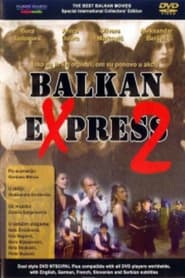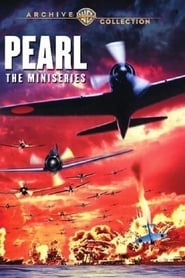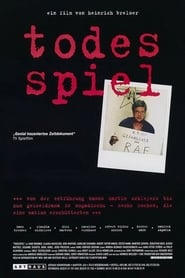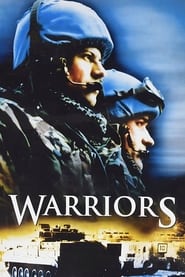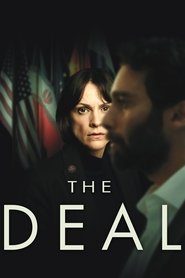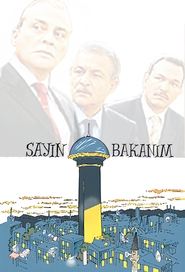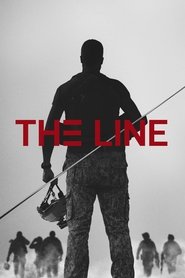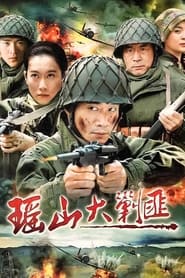War Politics TV Series - Page 52
-
The Republic
1998
The Republic
1998
star 7.1This origin of the republic of Turkey. As İzmir celebrates victory, Latife Hanım’s admiration for Mustafa Kemal deepens while she hosts his mother, Zübeyde Hanım, in her home. Meanwhile, at Çankaya Mansion, the ailing Fikriye Hanım hides her worsening condition from Mustafa Kemal, only to be sent to a sanatorium as the War of Independence rages on. -
Balkan Express 2
1989
Balkan Express 2
1989
TV series made as an extended version of an eponymous feature film. A quintet of small-time crooks that works under disguise of a musical band become the supporters of Partisan resistance movement in WW2. Being forced to escape to another part of the occupied territory, they hide in "Marlene Saloon" forgetting that the bordellos of the kind are an ideal place for espionage during the war. They get more problems than peace and rest and the tragicomedy starts. -
Pearl
1978
-
Gra z Cieniem
2024
-
Dead Pool
1997
Dead Pool
1997
star 1Docudrama in two parts, based on the abduction of the president of the employer's association of Germany, Hanns Martin Schleyer, by the Baader-Meinhof gang in the Autumn of '77. -
Warriors
1999
Warriors
1999
star 9The series tells the story of a group of British peacekeepers serving in a peacekeeping operation of the UNPROFOR in Vitez, in Bosnia during the Lašva Valley ethnic cleansing in 1993. -
利剑
2010
利剑
2010
-
Escape
1980
Escape
1980
Escape is an American anthology series that aired on the NBC network from February 11 to April 1, 1973. The show was a production of Jack Webb's Mark VII Limited for Universal Television. It aired on Sunday evenings at 10 p.m. Eastern, following the NBC Mystery Movie. -
The Deal
2025
The Deal
2025
star 6.9Geneva, April 2015. In the hushed corridors of a luxury hotel, high-tension international negotiations get underway between the United States and Iran, suspected of secretly developing the atomic weapon. Alexandra Weiss, head of the Swiss diplomatic mission, is trying to maintain a fragile balance between the parties operating behind the scenes. The unexpected arrival of her former love, Payam Sanjabi, an Iranian engineer whose life is under threat, will complicate her task dangerously... -
1916 Seachtar na Cásca
2010
star 3.7Documentary on the 7 signatories of the 1916 Easter Proclamation. -
Yes, Minister
2004
Yes, Minister
2004
A Turkish remake of the British series called "Yes, Minister" created by Jonathon Lynn and Anthony Jay. -
Die Puppenspieler
2017
Die Puppenspieler
2017
star 5.4Helpless, the young convent student Richard has to watch as his mother Sarazenin Zobeida is condemned by the inquisitor Heinrich Institoris as a witch and burned at the stake. From then on, Richard swears revenge on Institoris for what he did to his family. He can escape and is taken by the merchant Jakob Fugger. He wants to teach him not only to seek blind revenge, but to manipulate people like puppets and thus to reach his goals. The two travel from Florence to Rome to influence the upcoming election of the pope and to witness the power struggle between the Medicis and the Borgias up close. -
The Last Gateway of the Nation
2016
It tells the story of the war of resistance that occurred in Yichang from 1938 to 1943. (Source: DramaWiki) -
The Line
2021
The Line
2021
star 7.1In covert modern warfare, the line between right and wrong has blurred. This docuseries examines the moral ambiguities of war as embodied by the 2018 case in which a U.S. Navy SEAL platoon accused its chief, Eddie Gallagher, of war crimes. -
枪林弹雨
2012
枪林弹雨
2012
-
Occupation
2009
Occupation
2009
A powerful, affecting drama that spans the five years following the invasion of Iraq in 2003. Follow the lives of three soldiers and friends as they deal with the war in Iraq and life back home. -
Declassified: Untold Stories of American Spies
2016
star 6.2Explore the true stories of America's covert operations told firsthand by the agents who lived it, while getting unprecedented access to the riveting and secret world of espionage. -
遍地英雄
2005
遍地英雄
2005
-
瑶山大剿匪
2011
瑶山大剿匪
2011

